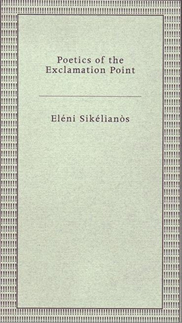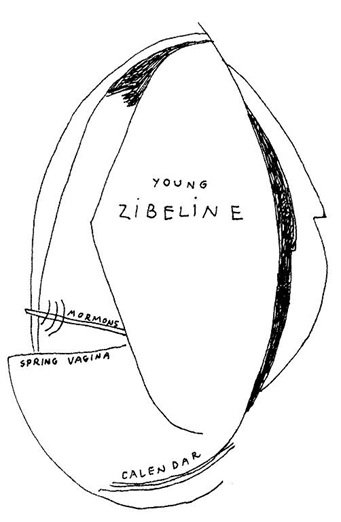Miles Champion had moved to the USA,1 Thomas Evans was soon to head out,2 the academy had shouted J. Prynne into his position as emperor of all important poetry, and London was a more vibrant place than that from which I had left. Khaled Hakim (the great undiscovered and disappeared writer of my generation) had given up writing, and Jeff Hilson and Sean Bonney were the two writers who were putting on readings and being excited about some of the same things as me. From my friendships with Jeff and Sean, I started to be excited by a number of British poets – a thing that had seemed unthinkable a couple of years earlier. This was, for me, a golden era of English writing which started with the appearance of Richard Parker on the scene3 (he gave an astonishing reading at Sean and Jeff’s Crossing the Line series) and which ended with the disappearance of Amy De’Ath to Vancouver. In that brief window of time, the poets who were reading and writing in London seemed to offer an exciting poetry which was open to many impulses, and beholden to none. The onedit of 2006-2010 was alive with the work of Jeff Hilson, Amy De’Ath, Richard Parker, Jonty Tiplady, Emily Critchley, Sophie Robinson, Sean Bonney (in particular, his amazing Baudelaire poems), Holly Pester4 and a whole younger generation of British writers who were seemingly rejecting the things which had (to my mind) always produced awful work – the demands of the academy,5 an explicit (as in un-nuanced) political agenda, or single-pointed poetic manifesto.6 When Amy went to Vancouver and Jonty disappeared from the scene, onedit’s second phase ended, too. Those years were the ones when I felt that readers in the USA would find something new to enjoy in English writing7 and were the years when being in the UK seemed like a fabulously exciting place to be. Issue after issue of onedit contains those many and various thrills.

Thomas Evans | onedit #2

Eleni Sikelianos | onedit #9
This second stage of onedit changed how I saw the mag in that it became an exchange as opposed to a life raft. A mag with Sophie Robinson, Judith Goldman, Alice Notley, Eleni Sikelianos, Amy De’Ath, Deanna Ferguson is a mag which asks the reader to read with openness, an international outlook, pleasure and intelligence. The arrangement of writers that happened after about 2005 continues to this day, with each issue tending to be a mix of a number of different components. Many issues contain pieces that were sent, unsolicited, and it is always good to read work by people whose work up to that point has been unknown.8 If I ask poets for work, I never, once asked, tell them to change anything. I know that the opposite is a not uncommon practice.9 It continues to be interesting to reprint rare pieces – usually from old mimeo mags.10 The overriding aesthetic that operates, I guess, is one in which broadly-international and broadly anti-academic (as in institutionalised / dogmatic) writing is valorised: there is no statement of intent, however, as it is my firm belief that all generalisations11 exclude the possibility of change or of diversity – two of the things I am in favour of as much as the other more dogmatic generalisations from the start of this sentence. Ah! And – while I remember – it was particularly pleasing to have Ron Padgett’s Picabia translations in onedit #8.

Ron Padgett & Francis Picabia | onedit #8
In recent years onedit has slowed to about an issue a year.12 This will speed up as my youngest daughter13 gets herself out to school and time becomes a little more available again. Future issues (the third phase, if you will) will be pretty much the same mix of writers (meaning – people whose work I like) and the occasional special feature. Holly Pester has promised a Collected (Sung) Space Shanties for one issue, and I intend to do an issue which features all the interesting British poets of whom I knew nothing when the mag started. I am happy to say that the work of Ralph Hawkins, Tina Morris, Spike Hawkins, John Furnival, Dom Sylvester Houedard and many others has filled a lot of gaps when it comes to interesting British poetry. Tim Fletcher’s extensive archive of broadsides and concrete poetry is going to be another stand-alone issue. The biggest problem with British poetry, it seems to me, is the narcissistic and inward-looking nature of what is read and discussed. But that’s what friends say about the USA too. My fault, 15 years ago, was ignorance of what was interesting here.14 I’m happy to say that my opinion has in part changed. I hope that the spirit of openness that onedit champions is a spirit that I can observe as well as preach. Poetry of many different kinds has entertained and sustained me the whole of my life. It has always been a joy to do onedit and it continues to be one. The mag turns 15 next year. It will continue until I drop.

Rebecca Rosier | onedit #13
- Married – briefly – to the poet Cole Heinowitz. ↩
- Married to the poet Lisa Jarnot. ↩
- And Frances Kruk and Sean Bonney’s yt communications. ↩
- And Jow Lindsay. And Justin Katko. ↩
- The opposite of John Ashbery’s ‘It is best to approach the subject with an open mind and preferably complete ignorance.’ ↩
- Sadly, these three things rule a great deal of UK poetry in 2014. For manifesto, read grant-application. ↩
- For the first time since Tom Raworth ↩
- onedit gets up to 15 submissions a month. ↩
- Amy De’Ath tells horror stories of older British male editors asking her to completely rewrite poems for them – and such arrogance fills me with horror. ↩
- I recently bought C COMICS #2 with a view to scanning and putting it up online. Does anyone have a scan of #1 for a C COMICS Complete issue? ↩
- ‘Generalization is the enemy of mankind’ Czeslaw Milosz. ↩
- It has never had any deadlines or production targets because the world’s full of enough of that bullshit anyway. ↩
- Thing #2. The sole reason for the slowdown in production. ↩
- Being narcissistic and outward-looking, perhaps. ↩













